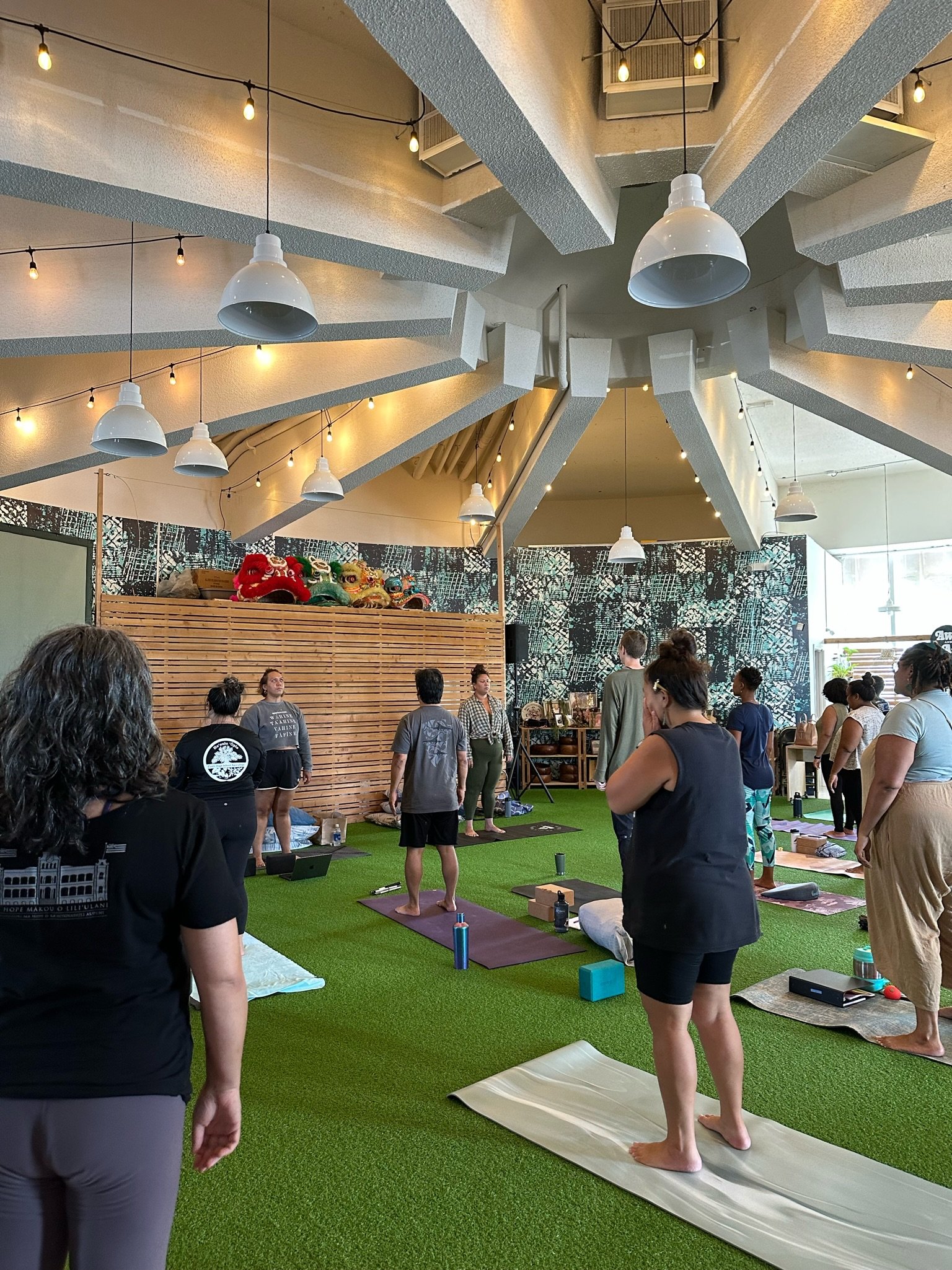What Does ‘Ōlelo Hawai’i Month Mean To Us?
February 16, 2024 | Honolulu, O’ahu
In 2012, an amendment to the Hawaiʻi Revised Statutes § 8-24 designated the month of February as “ʻŌlelo Hawaiʻi Month.” This month recognizes and celebrates the Hawaiian language. Here at Project Koa Yoga, we strive to do our part in amplifying educational awareness surrounding topics that are important to the Hawaiian Kingdom, and this month, we are amplifying why the history and significance of ʻŌlelo Hawai’i is essential to understand and cherish forever.
According to the United Nations, the world’s indigenous languages are under threat of disappearing, with one language facing extinction every two weeks. For centuries, prior to the arrival of Europeans in the late 1700s, the Hawaiian language was shared orally with no written form. Traditions were preserved through chants, prayers, myths, songs, and oral histories. It wasn’t until 1824, with the arrival of American missionaries, that they introduced a Western-style of schooling. At this time, Hawaiian was still the main language used in the education system. However, in 1896, following the illegal overthrow of the Hawaiian monarchy in 1893, the new provisional government, the Republic of Hawaiʻi, passed a law that allowed Hawaiian language to be banned in schools and discouraged families from speaking in the home. By removing Hawaiian language, culture, and history in the schools and replacing it with American studies, foreigners sought to erase Hawaiian culture and establish the Hawaiian islands as an “American” possession. It was reported in 1985, only 32 children under the age of 18 – including children on the island of Niʻihau – spoke Hawaiian. The Hawaiian language was on the brink of extinction, but…
E OLA KA ʻŌLELO HAWAIʻI (the Hawaiian language shall live)!
The Hawaiian language is alive today thanks to the efforts of a dedicated group of Kānaka and Hawaiian language supporters who saw the importance of its preservation. While the exact number of Hawaiian speakers today is difficult to determine, a 2016 State of Hawai’i report, recorded about 18,000 people living in Hawai’i said they speak both Hawaiian as well as English at home - a significant increase over the past several decades. From the work of revered Mary Kawena Pukui, a Hawaiian language translator, researcher, and teacher to our modern day resources such as Ulukau, a digital Hawaiian library, the people of Hawaiʻi have fought to keep the Hawaiian language alive. Today, a child can be educated from infancy to a doctoral degree all in the Hawaiian language.
Mo’olelo & Movement Class with Hi’i and Anuhea | Next class is TOMORROW, February 17!
At Project Koa Yoga, our team is at varying levels in our journeys with ʻŌlelo Hawaiʻi and we strive to preserve our language and culture in whatever ways we can. We fight to preserve and help our language thrive through sharing family and place-based stories with our community, as well as sharing the Hawaiian vocabulary that we know and are learning. We look forward to continuing to learn with one another and making space to perpetuate ʻŌlelo Hawaiʻi for many years to come!
Today’s blog was just a brief introduction to the history of the Hawaiian language. We encourage you to continue researching on your own and to check out some of the resources shared below.
Resources to Watch:
ʻĀhaʻi ʻŌlelo Ola | ʻŌlelo Hawaiʻi: https://www.youtube.com/watch?v=wRSrTorWnho
E Ola Ka ʻŌlelo Hawaiʻi: The Hawaiian Language Shall Live (Pūnana Leo, Inc): https://www.youtube.com/watch?v=m2m5jnVmmZg
Hawaiian Language Masters | Long Story Short with Leslie Wilcox: https://www.youtube.com/watch?v=44FiMO_OKps
Mary Kawena Pukui (1984) | PBS HAWAIʻI PRESENTS: https://www.youtube.com/watch?v=UZVD3iZqMdE&t=5s
Resources to Learn and Listen to Hawaiian:
ʻAha Pūnana Leo - Youtube: https://www.youtube.com/@ahapunanaleo83/videos
Ka Leo ʻŌiwi – OiwiTV - Youtube: https://www.youtube.com/watch?v=_y3Jxng1LMA&list=PL5TtUplqM5Vp9kULDMIb4arKedbhw13jg
Ulukau - Hawaiian Electronic Library: https://ulukau.org/index.php?l=en
Nupepa - Hawaiian Newspaper Collection: https://nupepa.org/
Papakilo Database - Data pertaining to historically and culturally significant places, events, and documents in Hawai'i’s history: https://www.papakilodatabase.com
Ka Leo Hawaii - Public Hawaiian language radio program broadcast from 1972 to 1988 with interviews of mainly Native Hawaiian speaking elders and phone calls from listeners: https://ulukau.org/kaniaina/?a=p&p=publicationhome&sp=A#:~:text=Ka%20Leo%20Hawai%CA%BBi%20was%20a,and%20phone%20calls%20from%20listeners.
Book - ʻŌlelo Noʻeau: Hawaiian Proverbs & Poetical Sayings: https://bishopmuseumpress.org/products/olelo-no-eau-hawaiian-proverbs-poetical-sayings-1
Duolingo - Hawaiian: https://www.duolingo.com/course/hw/en/Learn-Hawaiian





